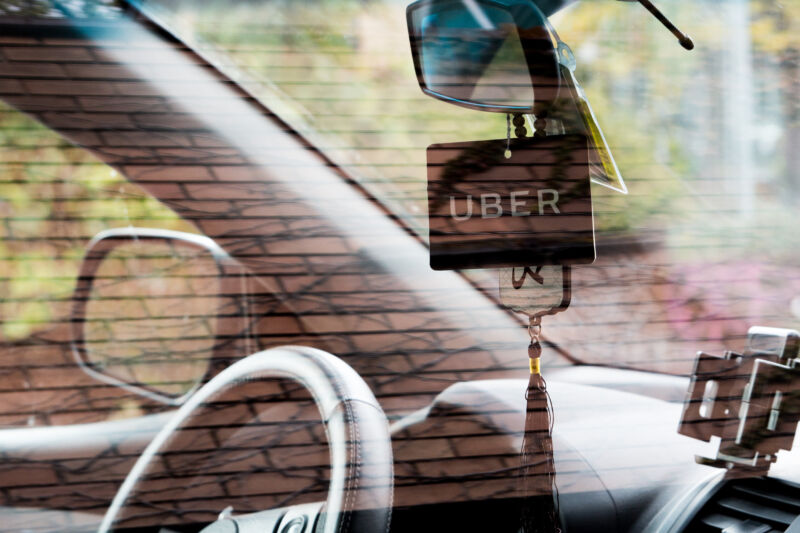
Media outlets have only just begun to dig up all the dirt buried in the so-called Uber files. The more than 124,000 confidential files collected by The Guardian reportedly show exactly how Uber’s greed led to unethical executive decisions during the ridesharing app’s global expansion.
The Guardian began with a series of reports from various outlets and delved deep into private communications that make up the bulk of the data breach. That cache of 83,000 emails, iMessages and WhatsApp messages reportedly reveals “the inside story” of how Uber evaded police for five years while endangering driver safety, attacking rivals, secretly telling officials. courted financial incentives and blatantly flouted laws in pursuit of market dominance.
Recognizing the misdeeds that took place between 2013 and 2017, Uber can now only say: let’s leave the past in the past.
“We have and will not apologize for past behavior that is clearly inconsistent with our current values,” Uber SVP of Marketing & Public Affairs Jill Hazelbaker wrote in a statement. “Instead, we’re asking the public to rate us on what we’ve done in the past five years and what we’ll be doing in the coming years.”
Uber did not immediately respond to Ars’s request for comment, but the official position is that it has since revised its course under new leadership. It has become a “different company” thanks to the “90 percent of current Uber employees” who joined after CEO Dara Khosrowshahi came on board in 2017 to make things right. The company says it is prioritizing driver safety today, along with taxi companies and unions it once waged war and is working transparently with officials to comply with thousands of regulations.
Despite Uber’s wishes, the past is unlikely to stay in the past, and the timing of the release of the Uber files isn’t great. The public reckoning of the Uber files comes just as the tech company turned profitable for the first time in its history.
The Guardian report is the first of many to emerge from a large-scale global investigation into Uber conducted by 180 journalists representing 40 media outlets. They came together through the International Consortium of Investigative Journalists to share the wealth of data in hopes of telling the full story of Uber’s dodgy past. Expect more outrageous Uber stories this summer from the BBC, Washington Post and Le Monde, among others.
What did Uber do?
The Guardian report shows how top-level Uber staff and executives — operating under Uber co-founder Travis Kalanick at the time — joked about the company’s “other than legal status” and openly discussed other questionable growth tactics.
Reports from executives prove how Uber allegedly strategically circumvented regulations in many countries, including Turkey, South Africa, Spain, the Czech Republic, Sweden, France, Germany and Russia. “We are not legal in many countries, we must avoid making hostile statements,” one executive warned in an email.
The reports also document how, when law enforcement officers in France, the Netherlands, Belgium, India, Hungary and Romania attempted to raid Uber offices to crack down on suspected illegal activities, Uber flipped an internal “kill switch”. to deny authorities access to its data systems. “We’ve officially become pirates,” another executive claimed in an email.
Kalanick’s spokesperson told The Guardian that the “kill-switch” software was not designed to help Uber evade authorities and “should never have been used to thwart legitimate regulatory action”. The spokesperson also said that Uber stopped using the software in 2017, “when Khosrowshahi replaced Kalanick as CEO.”
These tactics and other questionable protocols were reportedly sanctioned by Uber’s legal department.
Another message from Uber’s head of global communications, Nairi Hourdajian, stood out from thousands of messages searched by The Guardian. It made it clear that the leadership considered Uber above the law. “We’re just fucking illegal,” Hourdajian explained. (Hourdajian declined to comment in The Guardian’s story.)
The future of Uber
Last November, Uber celebrated its first profitable quarter since launch, about four years after replacing its CEO. More recently, The New York Times reported in May that Uber’s profits have continued to soar, with the company reporting revenue of $6.9 billion for the first three months of 2022, exceeding analyst expectations and skyrocketing 136 percent from the previous year. from the same time last year. †
It’s no wonder that Uber hopes to look ahead rather than dwell on the past by accounting for all the “mistakes and missteps” made during what Hazelbaker described as “one of the most infamous setbacks in U.S. history.” American business.”
While the majority of the leadership responsible for that reckoning is now out of the picture, some executives like Uber Eats chief Pierre-Dimitri Gore-Coty — formerly responsible for Uber’s operations in Western Europe — have lingered. In Gore-Coty’s case, he attributes poor decision-making during Uber’s early years to youth and inexperience, saying he “too often took leadership from superiors with questionable ethics.”
Uber explained how it has made a huge shift in corporate culture, and recent profitability seems to indicate that the new strategy is paying off. “We have moved from an era of confrontation to an era of cooperation, showing a willingness to come to the table and find common ground with former adversaries, including unions and taxi companies,” Hazelbaker wrote. “We are now regulated in more than 10,000 cities around the world and work at all levels of government to improve the lives of those who use our platform and the cities we serve.”
As profits finally soar, it will likely depend on what forthcoming reporting from the Uber files shows whether Uber will reach the end of its rocky road to redemption without getting more public backlash.

